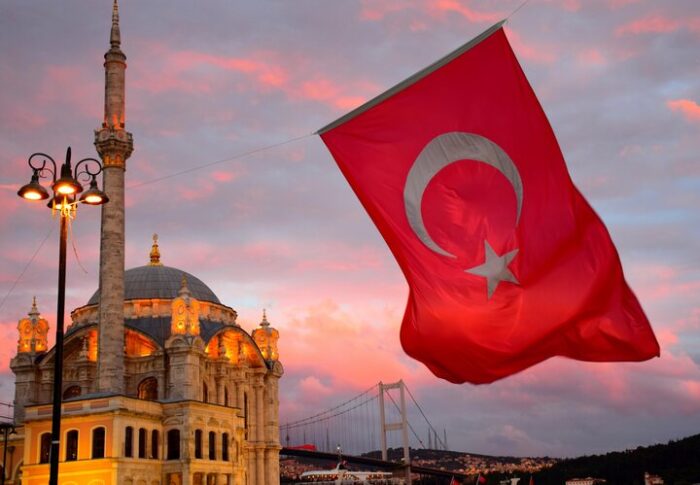
The study “Content is power: Cultural engineering and political control over transnational television” by Ece Algan and Yesim Kaptan from California State University investigates the effect of governmental media and cultural policies on the TV industry and its audience, with particular focus on exported TV shows.
The cultural exports of Turkish television have had a profound impact on not just the Middle East but the entire world. The matter has also been much researched, with research focusing on global audience’s response and engagement, soft power, pro-Islam sentiments and the promotion of conservatism there. Still, Turkish TV remains largely national in production and content, and thus is subject to the political landscape and legislation.
Under president Erdogan’s AKP, the Turkish state gave increased powers to RTÜK, a state agency regulating, controlling and sanctioning to monitor shows on TV. At the same time, the production of historical dramas with conservative content that glorifies Turkey’s past have flourished via Turkish Radio and Television Corporation (TRT). Subscription-based platforms also faced regulations: Turkey requires multinational corporations to have a local office in Turkey and thus to be subject to Turkish legislation.
In this study, the authors utilized a political economy approach to investigate the tension between the state’s ideological project and the regional, transnational, and global mediasphere and how it transformed the Turkish TV industry.
To do so, they examined numerous sources, including statistical reports, news releases and reports from the Turkish government, broadcaster websites, and 90 stories and op-eds from mainstream and oppositional national newspapers and industry trade magazines such as The Hollywood Reporter, Nikkei Asia, and Deadline.
According to the authors, the direct interference of the ruling party with TV content began in 2012 with president Erdoğan’s targeting of the globally popular TV series, Magnificent Century (Muhteşem Yüzyıl), a historical drama about Suleyman the Magnificent. The TV series depicted alcohol use and relationships with concubines, which the president found to be an insult to the past of the nation.
This controversy became a turning point, as it illustrated the limits of freedom and also propelled media industries supportive of the regime to produce content that better reflected the values of the ruling party.
One such series that supports the ruling party narrative is The Striker (Akıncı in Turkish), which features a Turkish superhero who is a teacher during the day. It features a group of villains controlling the US deep state called The Fivers, which has been compared in social media and columns to Erdoğan’s speech where he stated that “The world is bigger than five” – suggesting that the most powerful five countries in the world conspire against the other countries in the world.
RTÜK’s influence is shown in the banning of marriage shows on April 29, 2017. Marriage shows in Turkey became popular in the 1990s, but they remained controversial, getting complaints from a diverse group of viewers.
Although audience complaints were the official reason for the ban, AKP has long been critical of certain television show genres, claiming that they violate family values and traditional gender roles.
Even global companies such as Netflix have been affected. Netflix cancelled a Turkish original TV series, If Only, due to the representation of a gay character, although there were no gay scenes. This was a case of self-censorship due to fear of sanctions.
Non-Turkish shows in Turkey have also been affected by RTÜK. For example, Donde Caben Dos (More the Merrier in English) , a Spanish film, was fined and ordered to be removed from the catalog due to plotlines involving homosexual and incestuous relationships and partner exchanges among couples.
This also affects the production process. Tüzün Ateşalp (2016) found that scripts believed to be risky in their potential of facing censorship rarely enter the production stage.
In addition, AKP has used the state broadcasting company, TRT, to produce content that reflects its views. TRT has been criticized for producing educational but boring programs, and its dwindling viewership ratings reflect this perception. In turn, TRT has accused a number of production firms and the AGB Nielsen Company – a media research company – of tampering with television ratings. This resulted on a police raid of the AGB Nielsen and broadcast company offices.
TRT has also had its share of successes, even on a global scale. Resurrection Ertuğrul was a big-budget historical production praising the past and became a global hit. After that hit, TRT produced numerous other shows glorifying the Ottoman past and reinforcing AKP’s neo-Ottomanism.
TRT shows also function in shaping the domestic public opinion – AKP utilizes them as tools of propaganda. It is not a coincidence that most of the big-budget historical dramas are produced by TRT. The actual cost of these shows remains unknown, as TRT refuses to disclose the production costs despite being funded by the taxpayers.
TRT World, an English-language channel, is also part of this neo-Ottoman policy. It functions both as a diasporic media and as an instrument of soft power. It has also been described as a mouthpiece for the government. It serves as an alternative to Western viewpoint, promoting the superiority of Turkish, Islamic viewpoint.
In conclusion, the article showed how tightening regulation has led to the production of more conservative content in Turkish TV. State TV has been deployed to produce content that is friendly to Islamic values and Turkish traditions. This has resulted in demand for anti-Western, pro-Islam content in many Muslim countries.
The paper also shows the impact of the state TV content production and dissemination. A public antagonism between AKP and oppositional mainstream media existed in the first half of the AKP’s reign. In 2010, AKP loyalists managed to systematically eliminate big commercial outlets not owned by AKP, while making sure that AKP-friendly businessmen bought the rest.
The article “Content is power: Cultural engineering and political control over transnational television” by Ece Algan and Yesim Kaptan is in International Communication Gazette. (free abstract).
Picture: Büyük Mecidiye Mosque (Ortaköy Mosque) Istanbul, Turkey
License: Unsplash.